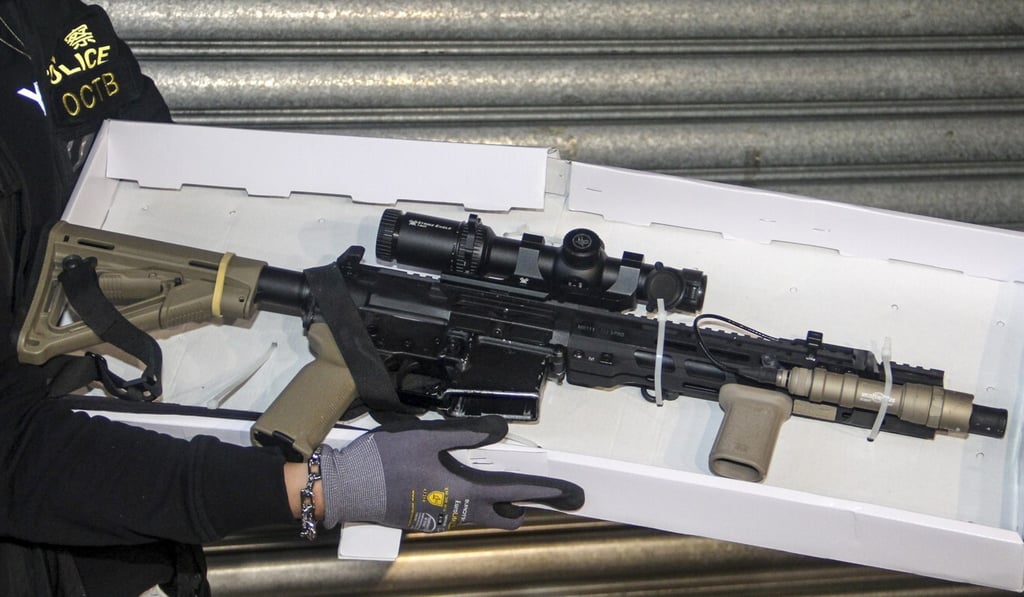Advertisement
Exclusive | Hong Kong security chief pushing for tougher action against local extremism by using anti-terrorism legislation to prosecute those involved in bomb plots
- John Lee says UN-mandated local legislation will be more effective than other laws at cutting off support for home-grown terrorism
- If public won’t join hands to stifle growth of terrorism, secretary for security does not rule out raising local threat level, after seizures of explosives and weapons
Reading Time:4 minutes
Why you can trust SCMP

Hong Kong’s security minister is pushing for tougher action against “budding terrorism” by using anti-terrorism legislation to prosecute those involved in home-made bomb plots, defending it as a necessary preventive measure rather than a political ploy against a resurgent anti-government protest movement.
In an exclusive interview with the Post, which earlier revealed that the city’s embattled police force was mulling the use of a UN-mandated local ordinance against a group suspected of making improvised explosive devices, Secretary for Security John Lee Ka-chiu said the legislation would be more effective than local laws at cutting off financial and other aid for home-grown terrorism.
“[The threat] is developing … If we want to nip it in the bud, [we should] ensure that they do not get any oxygen at all,” Lee said.
Advertisement
Ahead of expected Labour Day protests, with anti-government protesters chomping at the bit to hit the streets again as the city’s coronavirus crisis appears to be under control, Lee blamed “the habitual violence” of past anti-government demonstrations for giving rise to local terrorism.
If the public would not join hands to stifle its growth, he could not rule out the possibility of raising the current threat level from “moderate” to “high”, he said.
Advertisement

Advertisement
Select Voice
Select Speed
1.00x